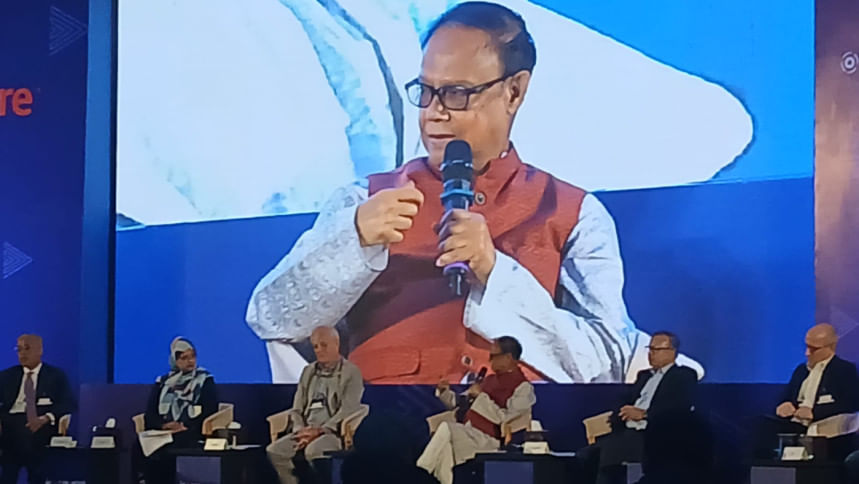BB governor stresses increased domestic resource mobilisation

As global aid flows shrink and traditional donor priorities turn inward, Bangladesh must strengthen its domestic resource mobilisation, Bangladesh Bank Governor Ahsan H Mansur said yesterday.
"Bangladesh used to rely on foreign aid for 12 to 14 percent of its budget back in 1972. Today, we've significantly reduced that dependency," he said at an event organised by CARE Bangladesh at Sheraton Dhaka.
"I firmly believe that we must enhance our resource mobilisation capacity, which is perfectly achievable," he added.
The governor noted that Bangladesh is lagging in revenue collection and stressed the need for constructive reforms. "Some initiatives are being taken by the government, but resistance persists."
Stating that Bangladesh is not doing a good job in terms of revenue collection, the BB governor noted that the sector needs constructive focus. "Some initiatives are being taken by the government, but there's resistance from within."
For instance, he said, "Recently, we have seen the fallout from a strike at the National Revenue Board, where officials essentially wanted to maintain the status quo.
"Bangladesh used to rely on foreign aid for 12 to 14 percent of its budget back in 1972. Today, we've significantly reduced that dependency," Bangladesh Bank Governor Ahsan H Mansur said
"But the status quo is not an option. We have to break out of it and move towards higher revenue generation."
Citing regional examples, Mansur questioned, "If India can collect revenue equal to 18-20 percent of its GDP, and Nepal can exceed 20 percent, why should we be stuck at our current levels?"
"These are questions we need to ask ourselves. It's certainly doable, and I'm not overly concerned about the financing gap," he said.
He stressed that Bangladesh must also harness the power of private capital, both domestic and international, in addition to public funding. Sovereign bonds, private sector borrowing, and foreign direct investment are among the viable options to tap into global capital markets.
"The world is moving on. Industrial countries are preoccupied with their problems. We must fend for ourselves, and East Asia has shown us that it can be done," he said.
The governor also noted that the Bangladesh Bank, under its evolving regulatory roadmap, is pursuing a multi-pronged strategy to bring the unbanked into the fold.
Over the past decade, agent banking has expanded rapidly with over 24,000 active units, rivaling the reach of traditional microcredit institutions. Combined with mobile financial services (MFS) like bKash and Nagad, the country is quietly scripting a digital finance revolution.
Each day, more than 4,000 nano-loans—small-scale, collateral-free credit—are being disbursed through mobile apps.
"So far, nearly Tk 7,000 crore has been disbursed through such platforms without paperwork, without face-to-face interaction. That's a game-changer," Mansur said. However, he admitted that Bangladesh still faces a paradox: even as digital finance grows, cash dependency continues to rise.
"We need to address both the front end and back end of the transaction process," he explained.
"Cash promotes corruption and tax evasion. Until we digitise both earning and spending points—from employers to shopkeepers—we won't see real change."
One of the key solutions lies in making smartphones affordable for all.
"Smartphones are no longer a luxury. They're essential," Mansur argued, pointing to proposals for installment-based purchases to bridge the affordability gap.
Meanwhile, the central bank is pushing for 50 percent female representation among agent banking operators, recognising the gender gap in financial access.
"We're reviewing banks' performance on this. Financial inclusion must be inclusive in every sense," Mansur added.
Among others, Ram Das, Country Director of CARE Bangladesh, and Ramesh Singh, Regional Director for CARE Asia, also spoke at the event.

 For all latest news, follow The Daily Star's Google News channel.
For all latest news, follow The Daily Star's Google News channel. 



Comments